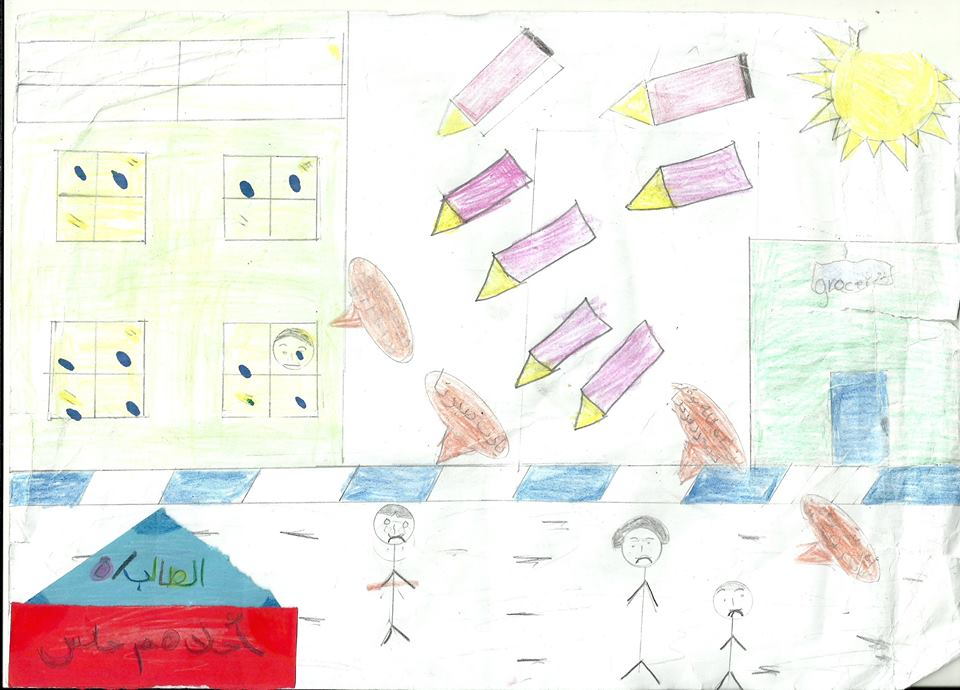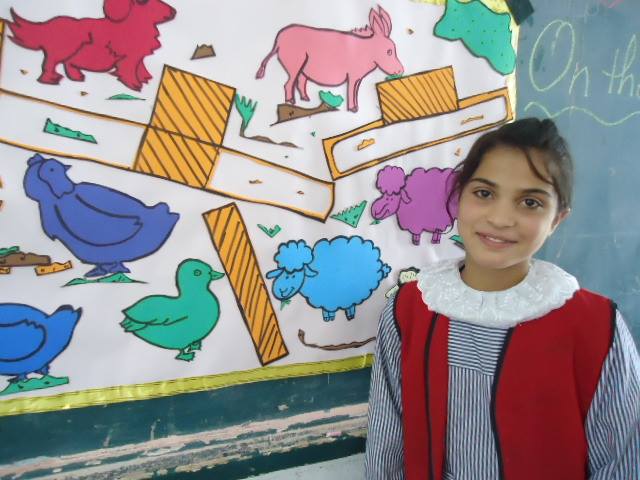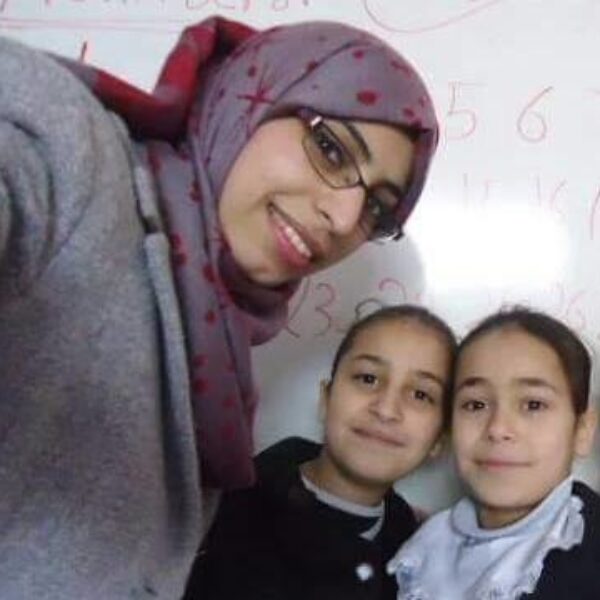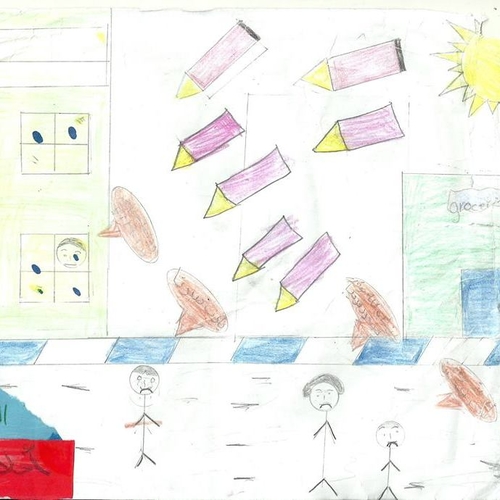
I work at the Al-Shujaiya Elementary School as an English teacher for the third and fourth grades. It’s a good job for Gaza, where crushing unemployment saps the energy, dreams and hope of youth. Every day, I walk to school along the streets that were bombed during the 2014 Israeli assault on Gaza, and I feel strange as I enter and leave.
On July 20, 2014, 90 Palestinians were killed and more than 200 injured when Israel attacked Shujaya. Today, life seems to have returned to the area, but what is it really like for the people who survived that night?
Children remember everything that happens to them; they may not know the exact time and place, but they recall many other details. These children have lived through three wars. They lived each moment of the 51-day assault and they can never forget it. Yet they still believe in their right to, and the power of, resistance.

Eight-year-old Amera Alhorokly’s family lives in Shujaiya near the Friday Market, the most popular shopping area in Gaza City. The area was crowded with people when a tank shell fell on her home, destroying most of it. Her family fled to her grandfather’s house nearby, along with her uncles and other relatives. Later that day, that house too was hit by a shell, which destroyed her grandmother's room.
They quickly left and sought refuge in a nearby church. There they met many other families who had fled their homes. Amera, who was 6 years old at the time, can’t recall how many days they spent in the church, but she remembers the evening an airstrike hit the local cemetery. She told me with a shudder how a tidal wave of sand reduced the graves to a heap of stones. Her family fled once more and finally some people helped them rent an apartment in the city, where they stayed until the end of the war.
Amera ended her story by saying sadly: “I love Gaza, I love Shujaiya and I love my school.”
The school janitor who normally lives next to the school also fled his home during the attack. He described the area as a ghost town. “It was really empty because most families left the area as soon as it came under attack,” he said. “Those were difficult times.”
Today, talking to my students about the assault, I can hear a similarity in their stories, their feelings and their reactions. I hear tales of fear and of loss. But their smiles, even as they tell these stories, speak of how much they still love life. More than one told me: “We are stronger than any war.”
Mentor: Peter Cohen
Posted July 13, 2016










